With its wide popularity (over 2.8 billion monthly active users), Facebook is an essential tool for marketers across the globe. To get through to your audience, you need to follow the latest Facebook updates, such as a limit on Organic Reach of a Facebook Page of 2% in 2016 for example. It is the number of people who get to see your post for free, and if your audience consists of 100 people, only a couple of them will get to see your brand’s posts.
That’s why you need to make sure your posts can reach your audience, and calibrating the optimum number of characters for your ideal Facebook post size is one way to go about it. The maximum number of characters you can use in a Facebook post is 63,206. But it does not mean that you have to use all of the space allowed.
According to the study conducted by Buddy Media in 2011, posts up to 80 characters obtain a 27% higher engagement rate than bigger posts. However, more recent studies recommend a lower volume for the best Facebook post length. Folks from Express Writers advise keeping your Facebook posts at 40 characters, as they earn 86% more engagement than longer posts. No worries if you happen to exceed the 40 character threshold. Posts with 80 characters or less are the second-best ideal Facebook post length according to the same study.
There is not much you can squeeze into a 40 words limit, so be selective with your copy. See how only four words in the post from The New Yorker already sum up to 30 characters.
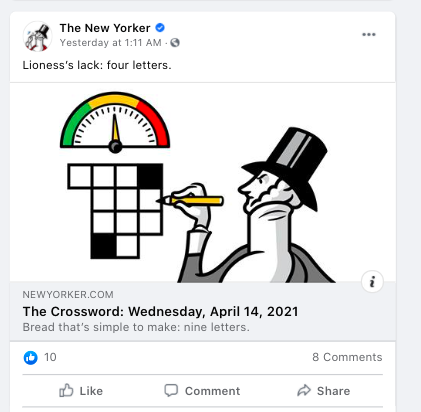
And compare it with a slightly longer post that exceeds 40 characters. There is a bit more room to express your idea in a post that exceeds 40 characters—a post that’s 70 characters (and only 11 words) rich.

Over 1.16 billion users come to Instagram every month to capture, edit, and share photos, videos, and messages. Although users come to Instagram mainly for its images and videos, you would still want to add the accompanying caption to strengthen your post. You can write up to 2,200 characters, but it’s not the ideal Instagram post size.
If you want to make sure that your entire caption is shown in the feed, you have to keep your post below 125 characters. See how some of the most well-known brands like Coca-Cola and McDonalds are keeping their Instagram captions short and sweet.
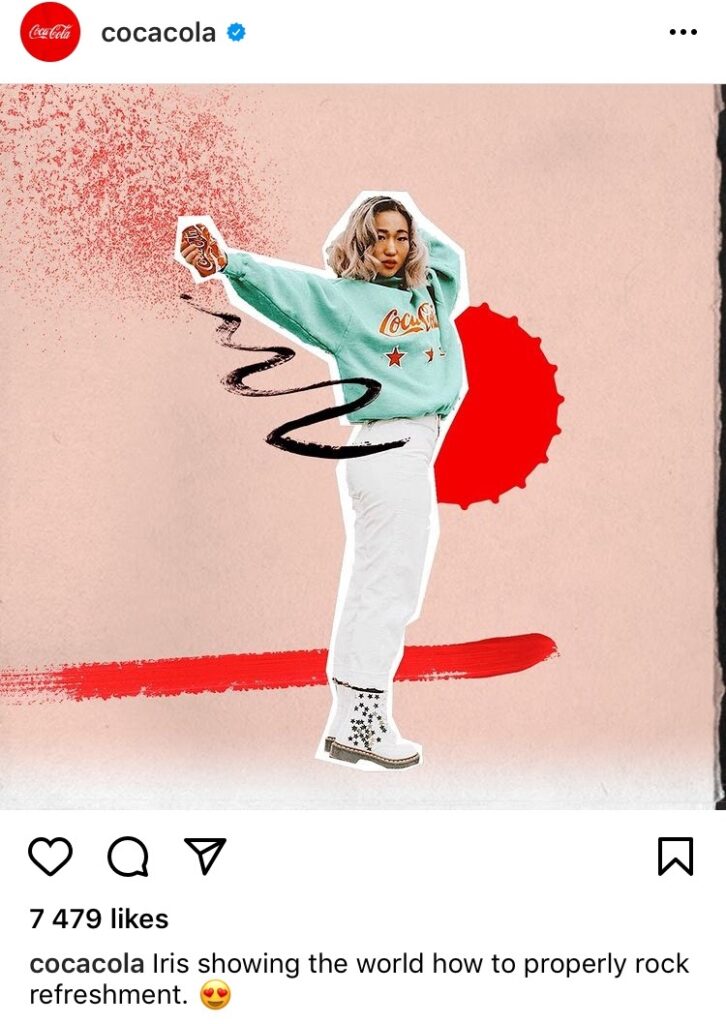
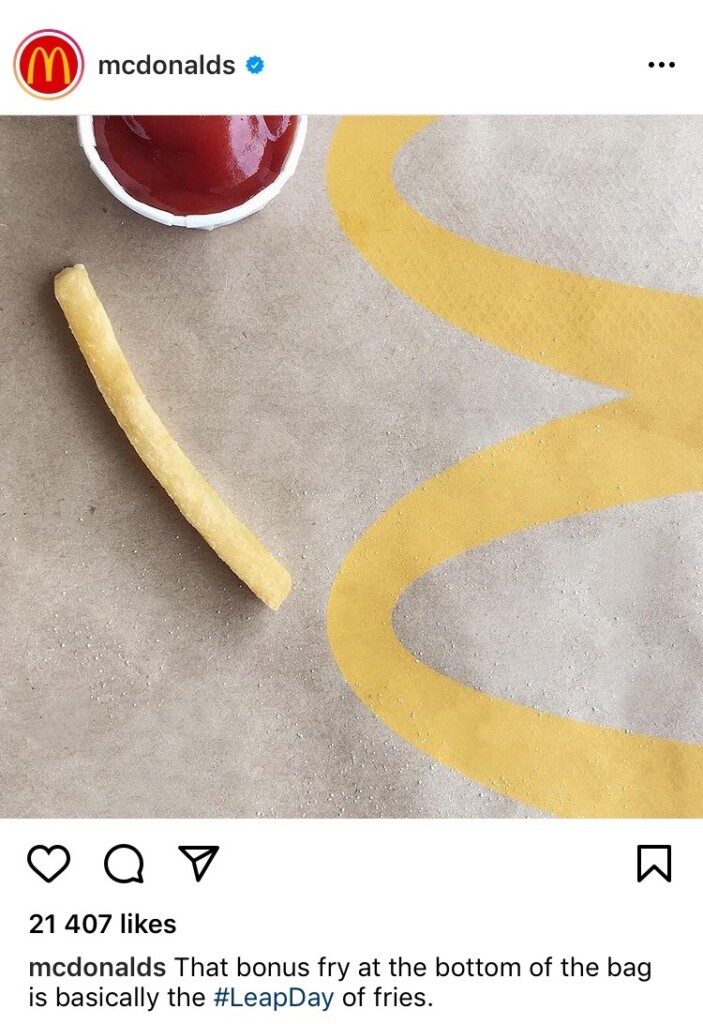
So how long should the best Instagram post length be? According to marketing specialists from SproutSocial and Influencer MarketingHub, posts between 138 and 150 characters get the maximum engagement. Here is an example of the ideal Instagram post length from Ben & Jerry.

For a long time Twitter took pride in its 140 characters limit, but since 2017 the platform allows up to 280 characters in a single tweet. When you upload images, videos, and gifs, or include mentions, you don’t have to worry about your total count as they are not taken into account by the platform. Unlike links: when the characters in your link exceed 23 characters, Twitter will automatically shorten them.
But does the new character limit mean that the ideal Twitter post length should be 280 characters? Research made by Buddy Media shows that 100 characters is the best Twitter post length. According to their study, tweets that are composed of less than 100 characters get a 17% higher engagement rate.
Similar research was run by Track Social, who investigated 100 well-known brands and came to a similar conclusion: the ideal Twitter post size should be below 100 characters. Their study found that tweets that are between 71-100 characters long on average get more retweets. Here is an example of a perfectly sized Tweet by Nike.

The maximum number of characters on LinkedIn will depend on whether you publish a post under your personal account or on behalf of the company page. You can use up to 1,300 characters for your personal updates and no more than 700 characters if you publish the post under a brand’s name. However, if you are creating an article, you will have much more space to share your content—up to 120,000 words.
LinkedIn will truncate the posts after they reach 140 characters by adding the “see more” button. That’s why it is recommended to keep the post under this mark. However SproutSocial recommends shortening the post even more and keeping the size of an update between 50-100 characters. Here is the example of the post with less than 100 characters used in the post update.
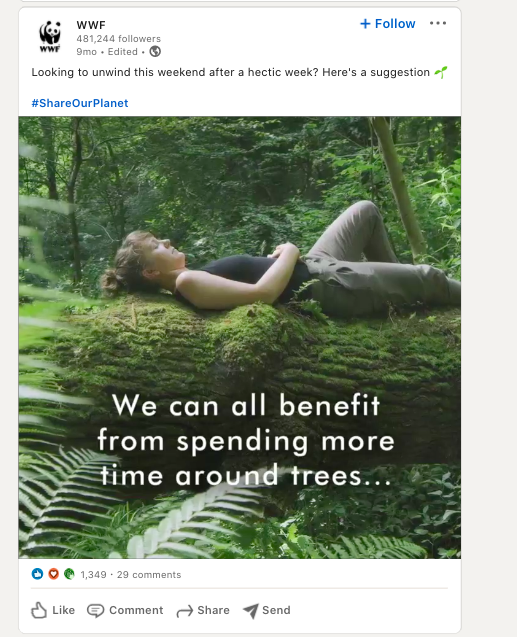
YouTube
On YouTube, you need to make sure that you keep your video title under 70 characters. As for the description, you can go as far as up to 5,000 characters, which is quite a volume.
Here are some of the recommendations from YouTube: Write unique descriptions for each video, use the first few lines to share what your content is about in a user-friendly language using keywords, and provide extra information (e.g. social links, website info) in the rest of the text.
See an example of a neat video description from Red Bull Snow YouTube channel: It contains information about the video and some useful links.
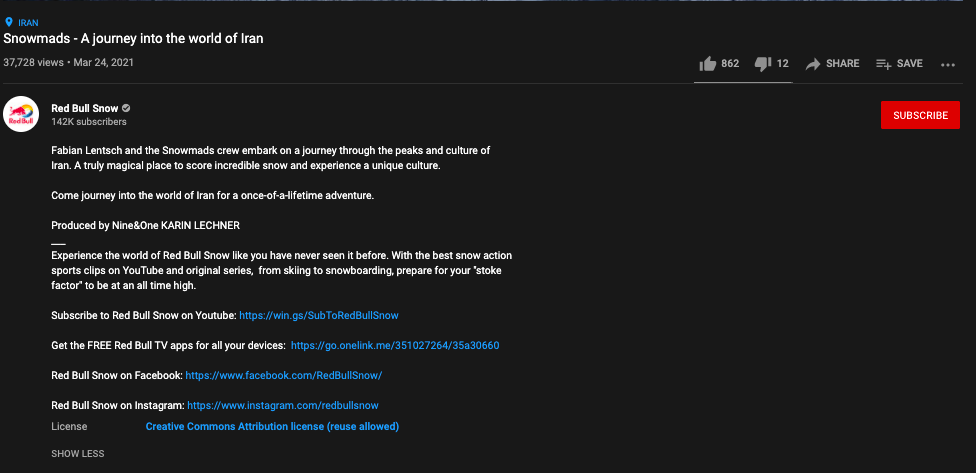
Since YouTube recently started allowing vloggers to identify time chapters, it is extra handy for viewers to watch longer videos. Providing time chapters and titles in the description field will not directly influence your video rating, but will definitely make it easier for your viewer. So we recommend using the description space to not only promote your brand, but also make the whole video experience as smooth and fun for your audience as possible.
What’s important to understand is the view rate of your video will depend on two main factors: your video title and the tags. It is advised to include keywords in your title, so that your audience is more likely to find your content. Same goes with YouTube tags: you choose this in the final stages of your video upload, so find the tags that describe your video and can help your audience find your content. You can select up to 30 characters per tag (500 characters in total).
With over 450 million monthly users, Pinterest is perhaps the main social media platform out there if you are in the hunt for some inspiration. Three main areas which you can utilize to get the most out of your Pinterest game as a brand are: bio, board description, and pin description. Your Pinterest bio can be up to 160 characters. Try to saturate this field with keywords that are relevant to your business. Here is an example of a proper bio from Puma (notice how they include their main hashtag in there as well).
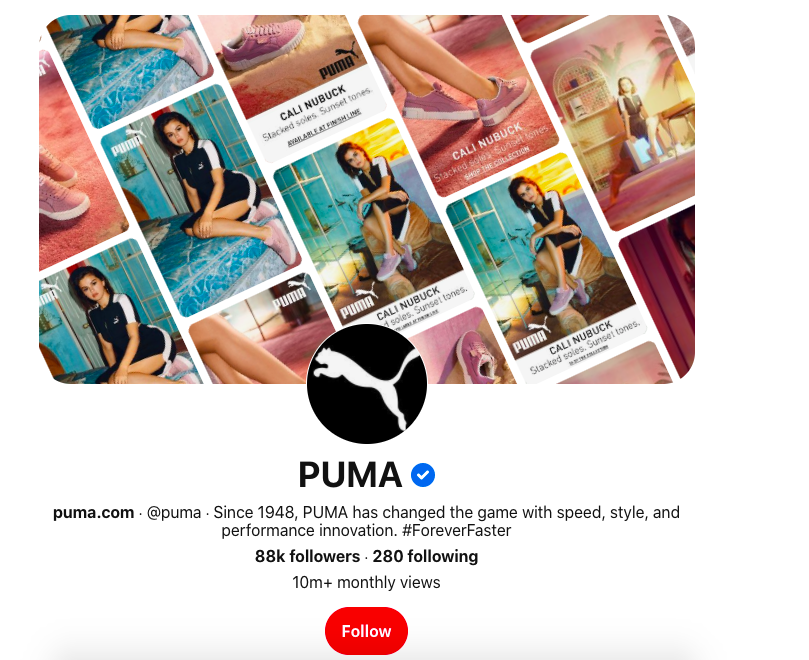
You should keep your board description, just as your pin description below 500 characters. Again, think in terms of SEO (search engine optimization) and try where possible to add keywords and important hashtags to your text. See a good example of a pin description from H&M below.
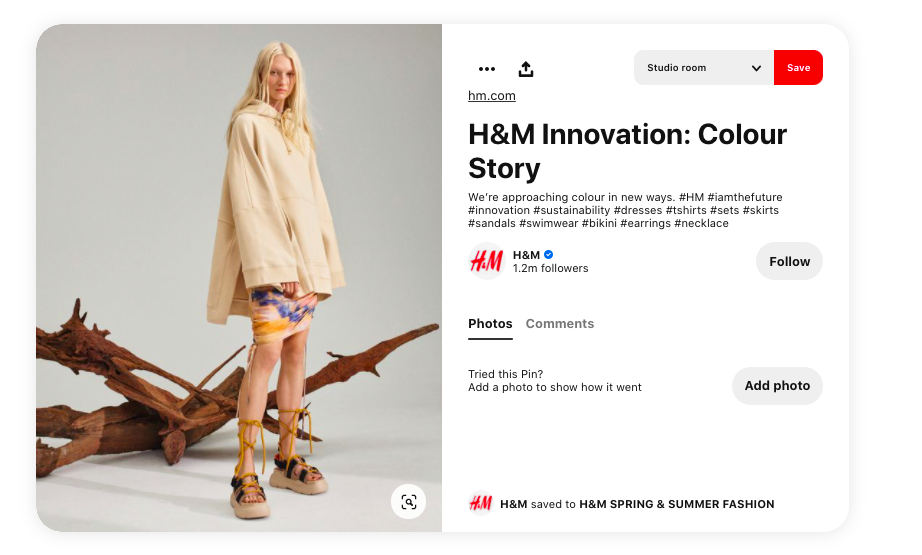
How Long Should My Social Posts Be?
In this blog post, we’ve covered some of the main social media platforms and identified each of their word limit strategies. What counts is what you write and how you write it. It’s tempting to use all the space to get your message across, but sometimes it’s better to keep it on a shorter side. Concise, and supported by keywords where necessary, straight-to-the-point content written with a customer in mind is what you should strive for.




